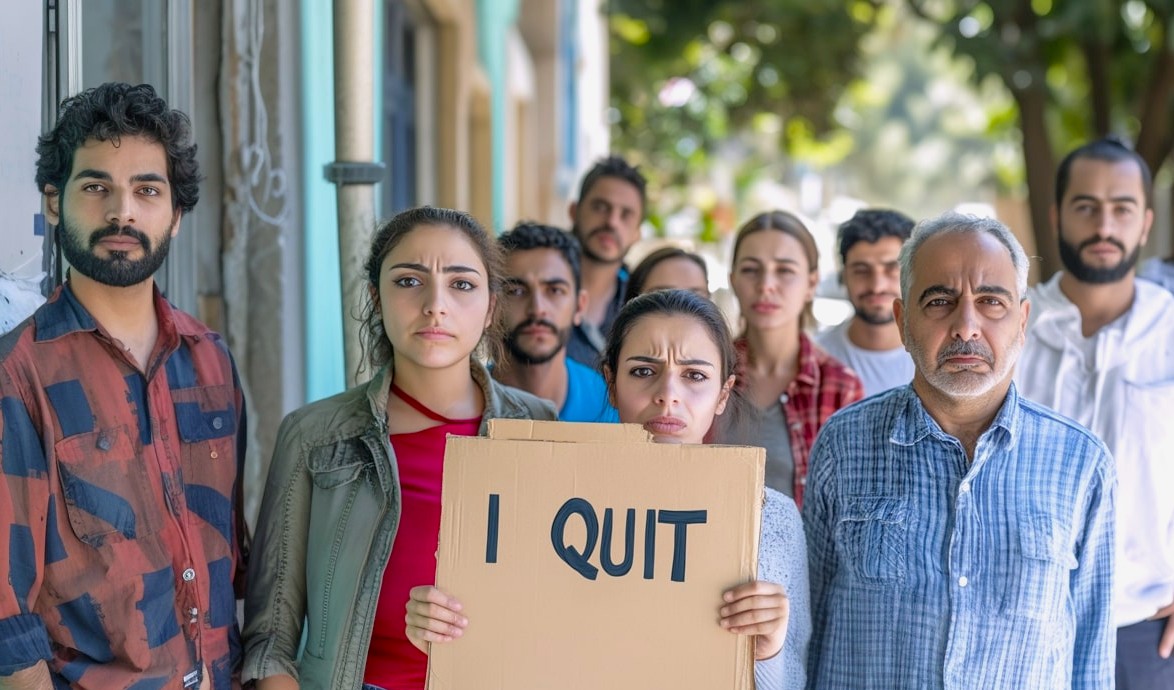On an island where titles are often inflated and recognition is assumed, is your work appreciated?
“Last summer our office air conditioning broke!
“It was the middle of the worst heatwave; the repairmen were slammed and couldn’t get there for a week. So my boss brought in a fan – for himself. And when a colleague fainted, he said, ‘Maybe you should work faster so you can leave sooner’.”
Employee appreciation may not be our strongest card in Cyprus.
There have been plenty of studies on job satisfaction, which includes factors such as pay, job security and work-life balance. And there, the island typically ranks somewhere in the middle.
But job satisfaction isn’t the same as feeling valued: employee appreciation is a different matter. And though countless studies confirm that employee recognition and active appreciation of staff boosts productivity, loyalty, company performance, and retention of staff, local research is limited.
Just one Cyprus study specifically asks the question ‘Do you believe you are praised for your hard work and dedication?’. And 52 per cent of respondents either disagreed or were undecided – suggesting that workplace appreciation may not be as widespread as it should be.
“We’re a nation of managers – lots of chiefs to fewer Indians,” says 34-year-old Larnaca finance manager Ioannis Kyrou, who works for the boss with the fan. “Everyone calls themselves a manager or supervisor, even if they’ve only got one employee! You end up with workplaces where everyone is in charge, but no one is actually supporting employees.”
According to the European Social Survey, Cyprus has more supervisors than any other country on the continent – 42 per cent of people claim to be responsible for overseeing others. Nearly 40 per cent of firms have fewer than 10 employees (second only to Israel). And we also have the highest percentage of the population working for a family-owned firm.

Together, these factors create a unique workplace culture. Titles are inflated, but true leadership is often missing. The plethora of micro-businesses allows for informal structures and blurred roles. And when you have a host of family-owned firms, appreciation is often assumed rather than expressed.
“If you’re working for your dad, professional boundaries don’t exist!” says Georgia Economidou, a 29-year-old lawyer in Nicosia. “There’s no annual review, bonus, no ‘well done’ at the end of the day. It’s just expected that you’ll do whatever needs to be done – whether that’s stay late, doing extra, or taking over when ‘the manager’ decides he needs a longer lunch! If you don’t like it, there’s always a cousin who can take your place.”
But there are other reasons we may be forgetting to appreciate our employees.
“There’s an old-school mentality here,” says Nikoletta Stephanou, a 31-year-old business consultant in Limassol. “When I first got this job, I thought we’d be a team, working together. So I pointed out an error – politely, thinking I was helping. But my boss got really angry, saying ‘In Cyprus, you should be grateful to have a job at all’!
“That’s what it’s like here: very traditional,” she adds. “You don’t question the boss. You can’t expect praise, even when you go the extra mile. After that incident, I stopped speaking up. I do my job, but nothing else. Why would I, when effort isn’t valued?”
This comes back to the research. Because employees who do not feel adequately appreciated are twice as likely to say they’ll quit in the next year. Some even do…

“The marketing agency I worked for was a total mess,” says 35-year-old Loukas Aresti, who works in Nicosia. “Our bosses were chasing trends they didn’t understand, making random changes, ignoring employees who actually understood the work.
“As staff, we knew we had the data; we knew what our clients wanted. But then one of the bosses would step in with these crazy, outdated ideas and destroy everything we’d done. No credit when things went right, all the blame when they went wrong.”
Eventually, Loukas left. “There comes a point when you just stop trying. And then you quit.”
Of course, not every workplace in Cyprus operates in this way; some employees feel highly valued.
“My salary isn’t high, but my manager is amazing,” says Eleni Eftychiou, a 28-year-old hotel receptionist in Paphos.
“If I go out of my way to help a tourist or cover for someone, my boss always says thank you. If I have a problem, she really listens and helps me solve it. Once, after a difficult week, she gave me an extra day off. All of that makes me want to do my best work for her.”
52-year-old Nick Michail, who was second-in-command at an NGO under several managers, has seen both the best – and worst – of employee appreciation…
“My first boss was a star! When I had back problems, he let me work from the couch in his office. He’d stop on the way to work every day and buy coffee for all the employees – paying out of his own pocket. And whenever we held events, he’d single out the staff for public praise. We all worked so hard for him!
His successor, however, was a different story.
“She’d gaslight and bully her employees, froze our salaries, and required us to work longer hours for no overtime! I loved my job, loved how much the organisation tried to help people,” Nick sighs. “But people don’t leave jobs, they leave bosses. So I quit.”
The first Friday in March is Employee Appreciation Day, founded in 1995 to highlight the value of recognising staff. As it nears, it appears that Nico may have a strong point.
According to Gallup, appreciation is the lowest-cost, highest-impact way to boost engagement, productivity and loyalty. When employees feel valued, they give more – not because they have to, but because they want to.
On an island where titles are often inflated, loyalty is expected, and recognition too often assumed, should we all be appreciating our employees that bit more?
Some names have been changed to protect identity






Click here to change your cookie preferences